Collaboration Cards
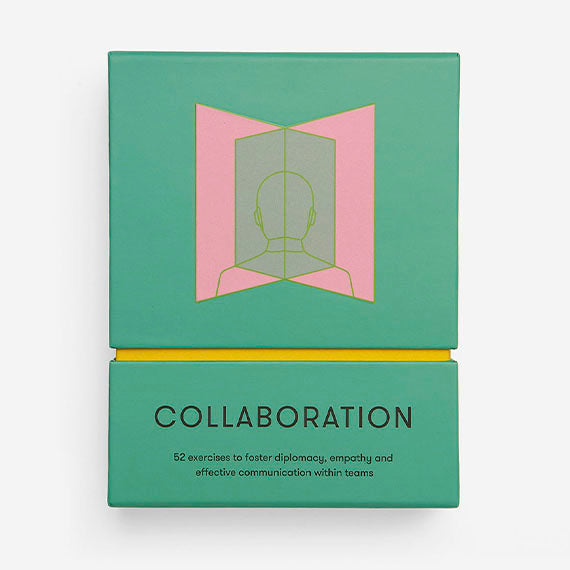
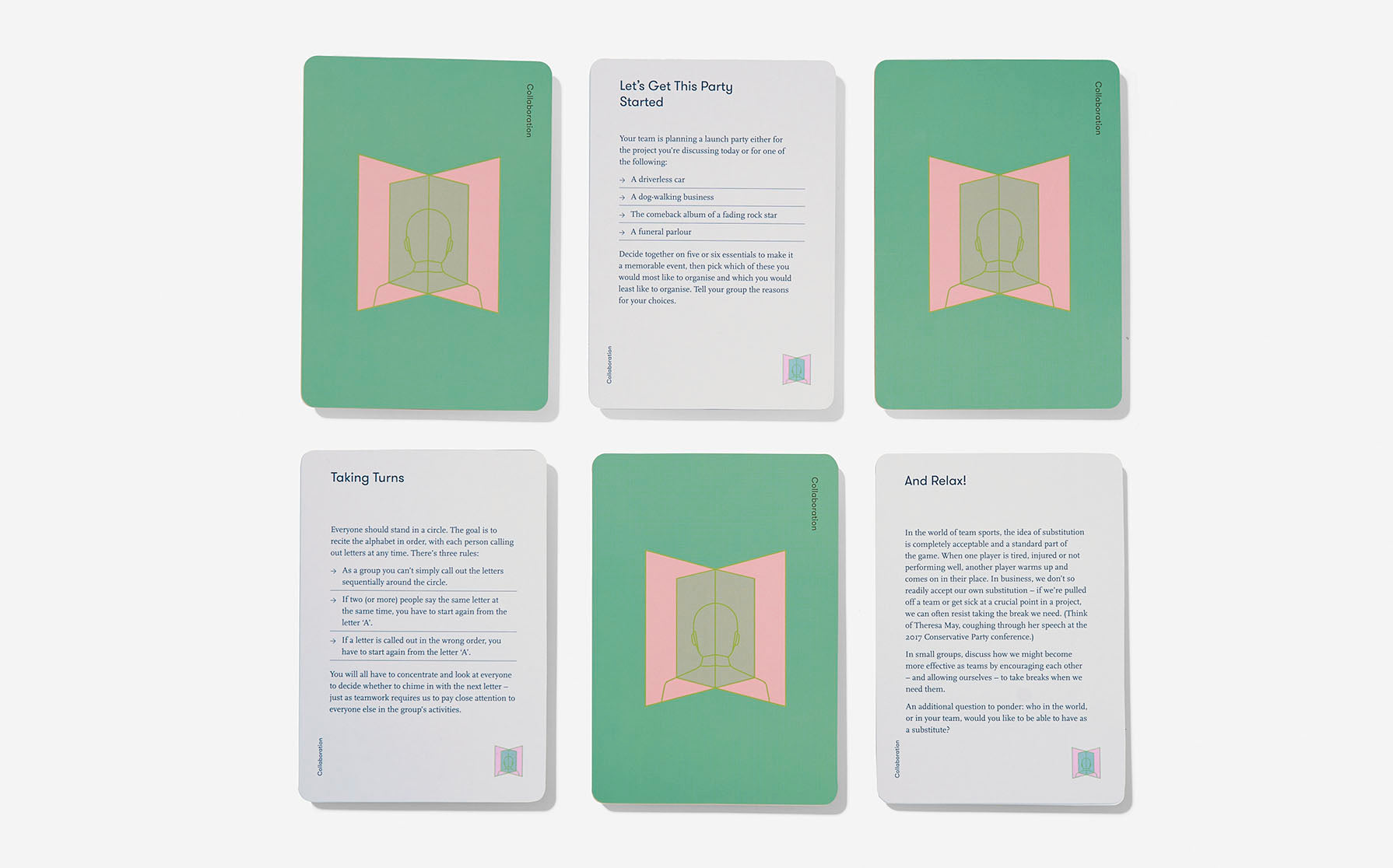
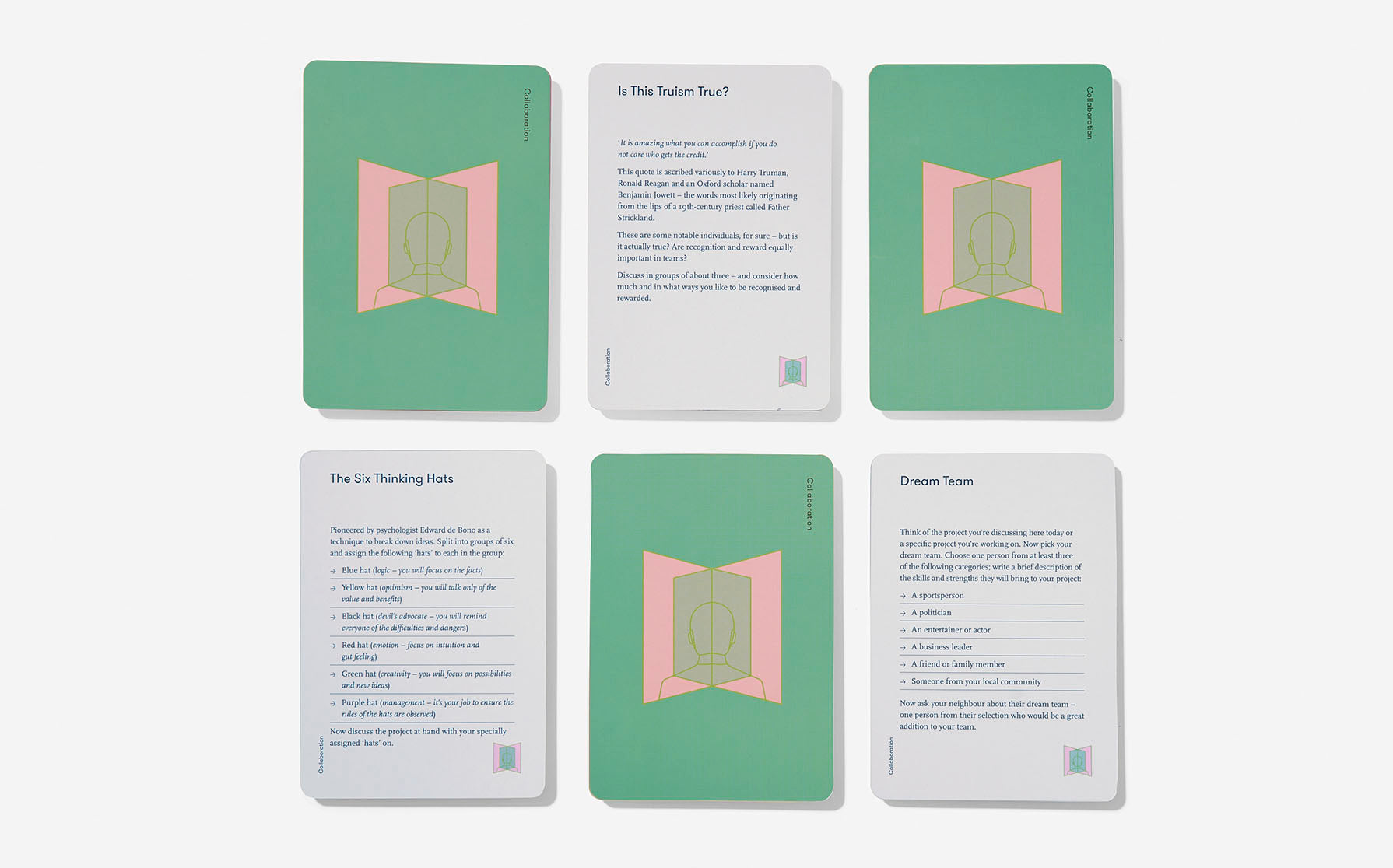
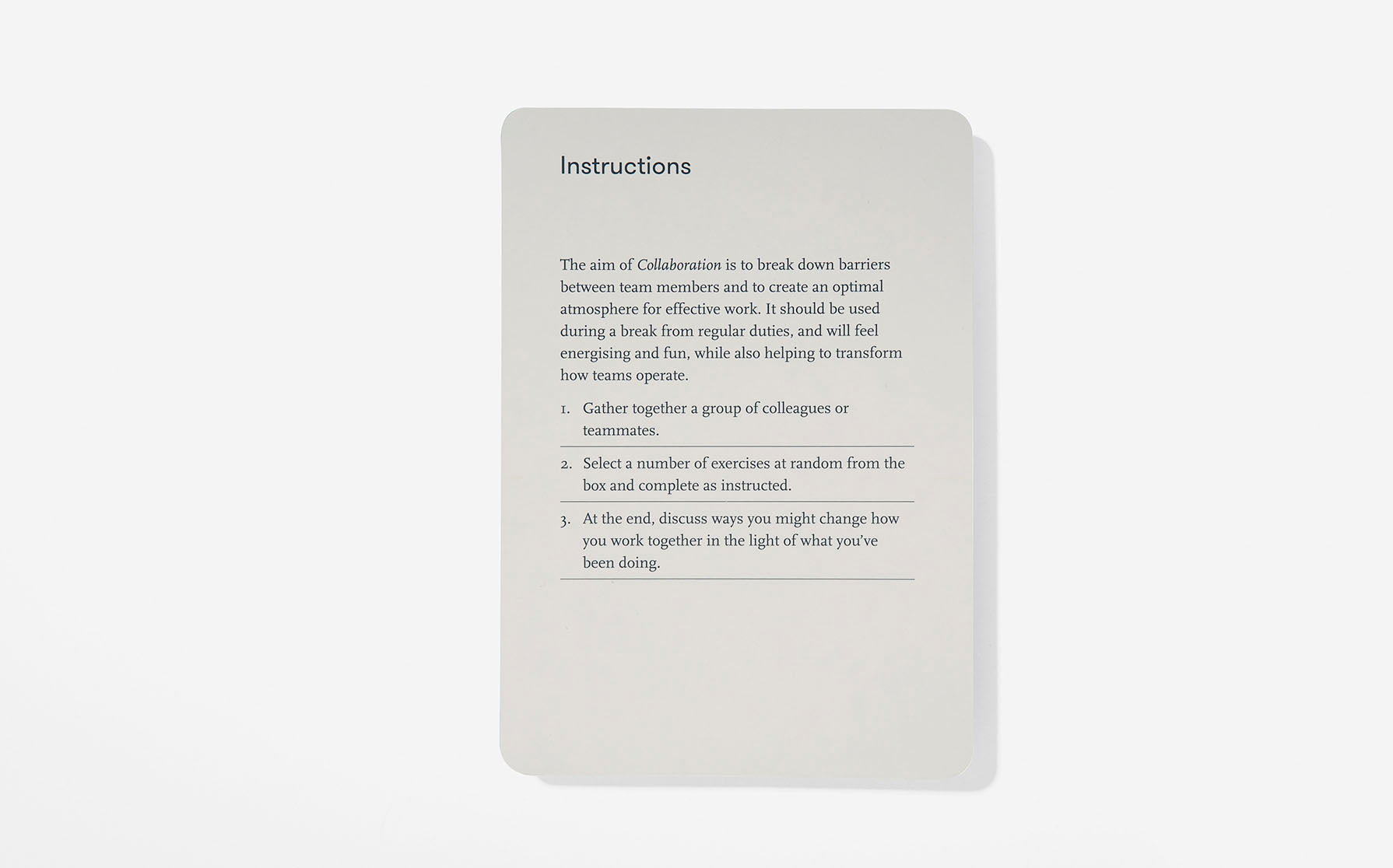
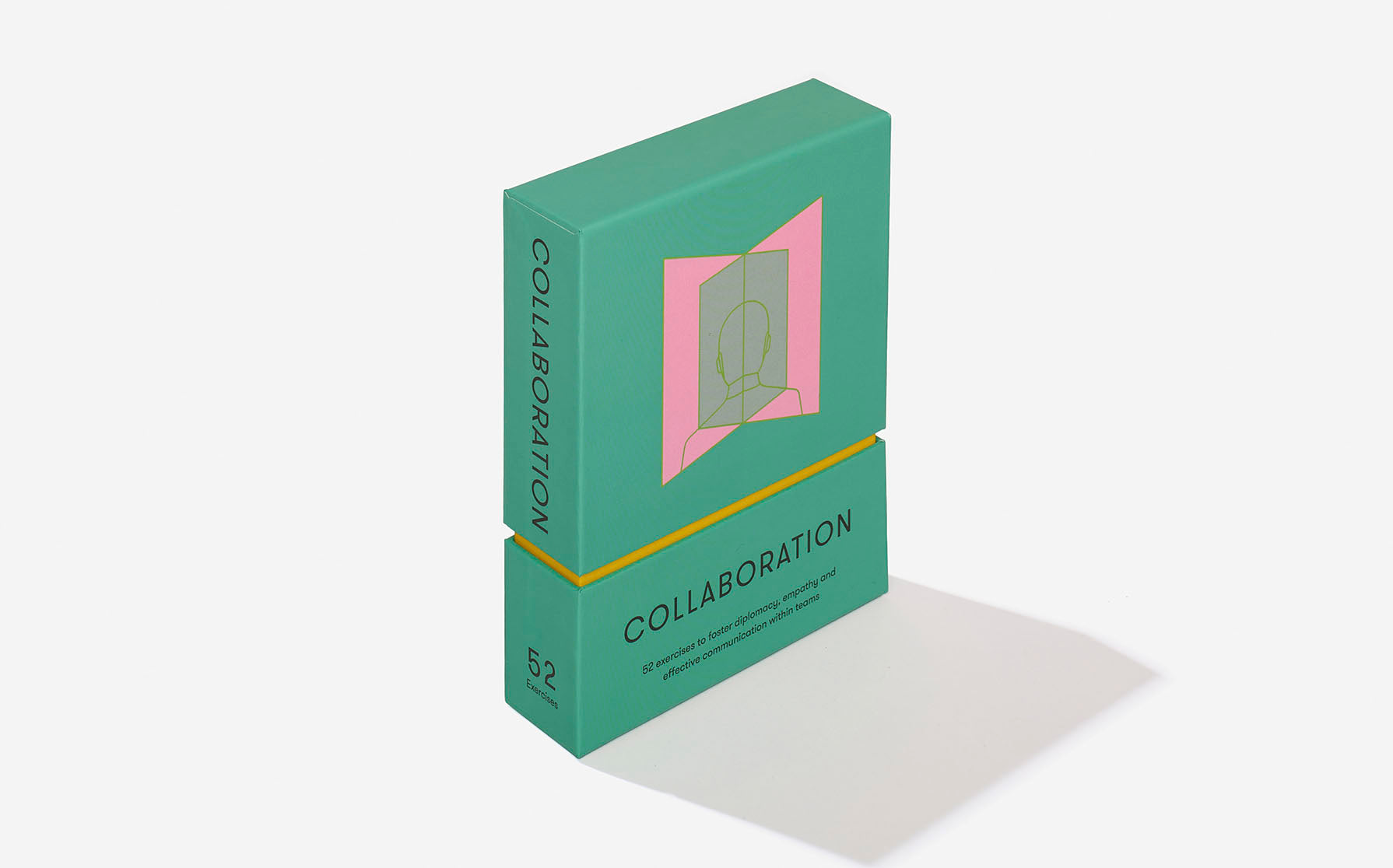
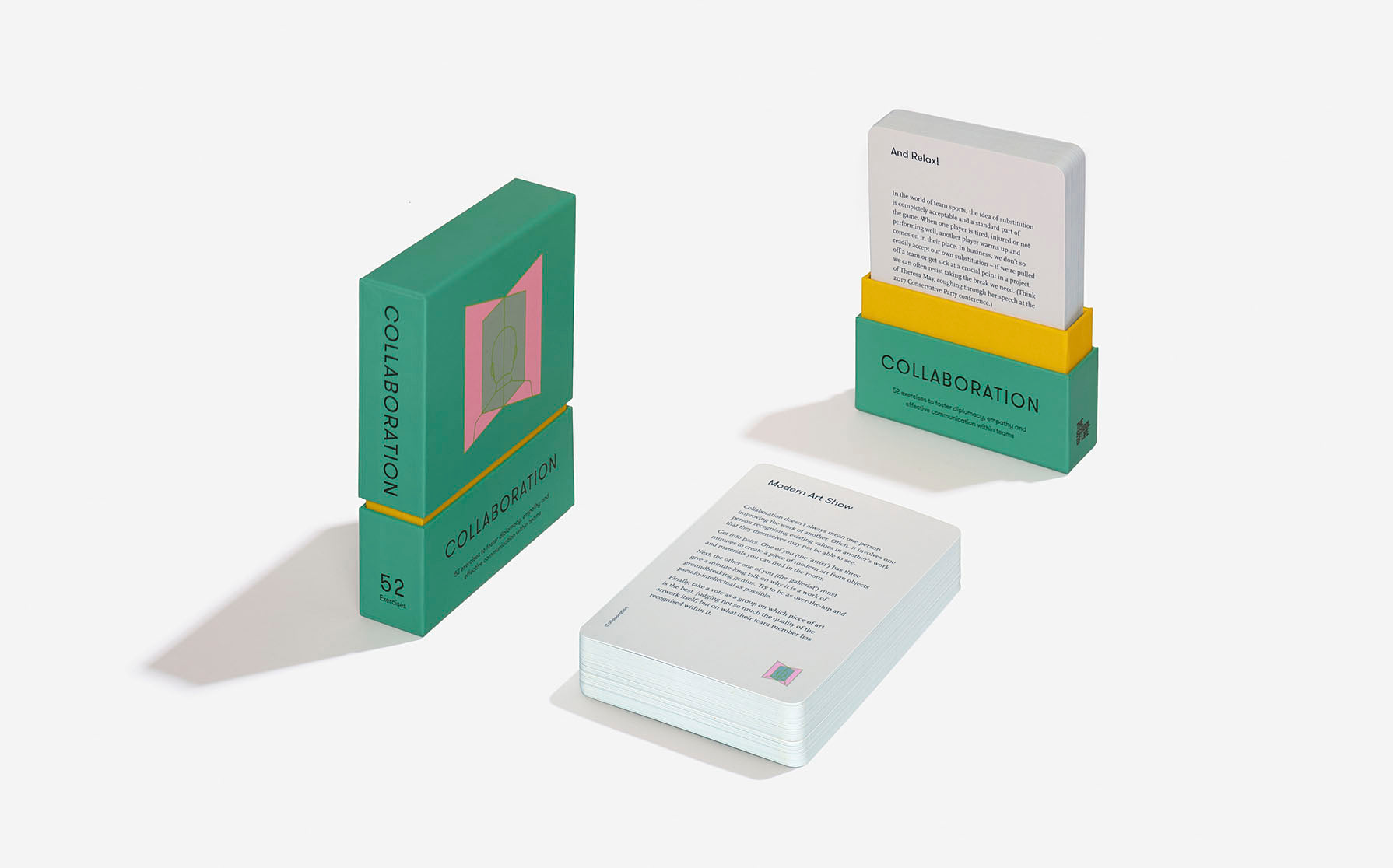
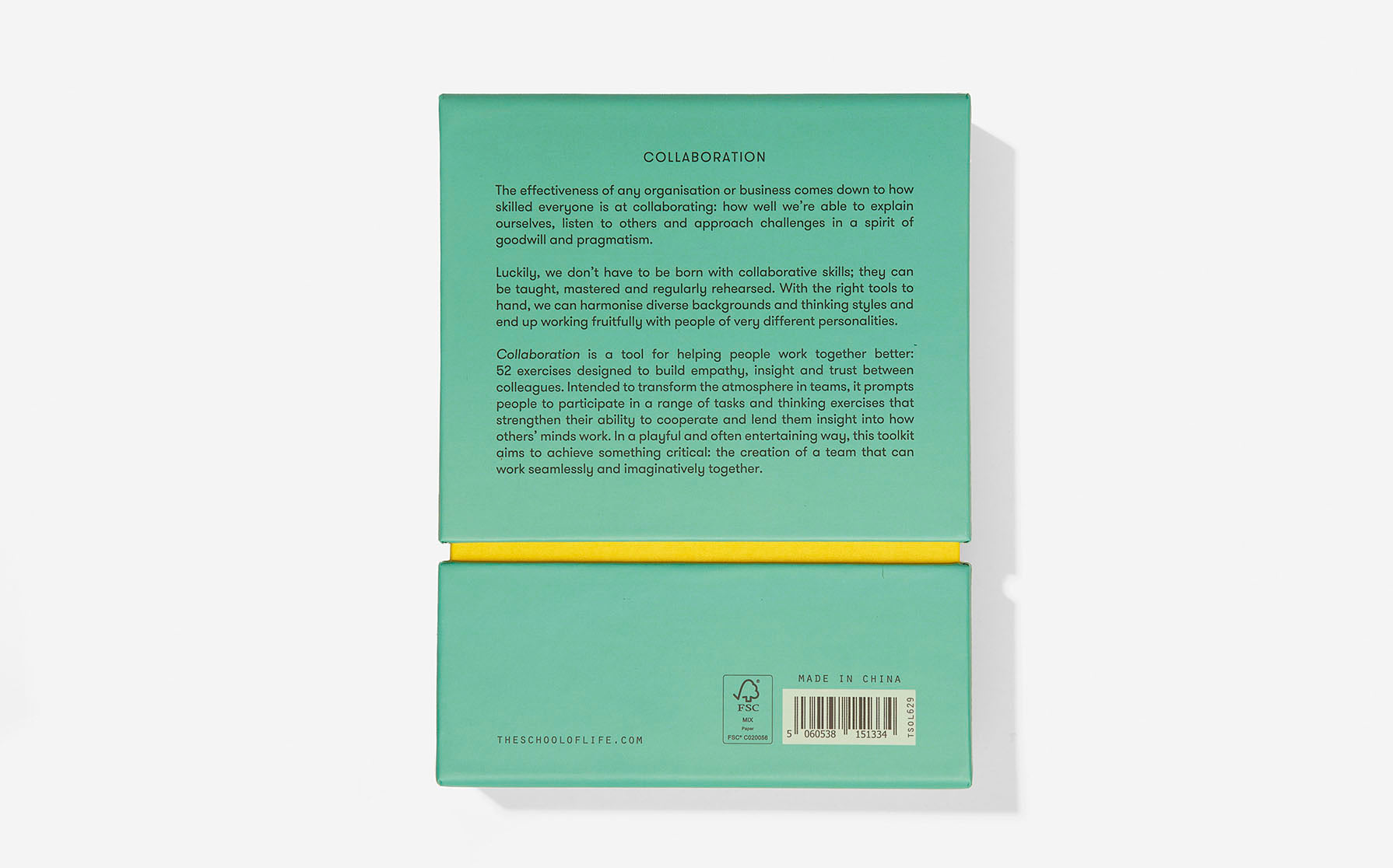
52 exercises to foster diplomacy, empathy and effective communication within teams
Luckily, we don’t have to be born with collaborative skills; they can be taught, mastered and regularly rehearsed. With the right tools to hand, we can harmonise diverse backgrounds and thinking styles and end up working fruitfully with people of very different personalities.
Collaboration is a tool for helping people work together better: 52 exercises designed to build empathy, insight and trust between colleagues. Intended to transform the atmosphere in teams, it prompts people to participate in a range of tasks and thinking exercises that strengthen their ability to cooperate and lend them insight into how others’ minds work. In a playful and often entertaining way, this toolkit aims to achieve something critical: the creation of a team that can work seamlessly and imaginatively together.
52 Cards | 155 x 115 x 35 mm
Instructions
1. Gather together a group of colleagues or teammates.
2. Select a number of exercises at random from the box and complete as instructed.
3. At the end, discuss ways you might change how you work together in the light of what you’ve been doing.
EXAMPLE CONTENT:
Strength Appraisal
Everyone should write down what they see as the key strength of every other member of the team (for example, that they’re empathetic, organised or tenacious). Then, going around the room, every team member should have their perceived strengths read out to them. Look out for any common themes that emerge and think about how the wider team’s perceptions might differ from your own.
Unscrewing Screw-Ups
Take it in turns to share the biggest mistake you’ve made at work – for example, deleting the file for an important presentation, placing an expensive order for the wrong type of printer ink, or forgetting the name of a major client during a meeting. Let the team suggest what lessons might be learned from the screw-up, and how the experience might have been beneficial in the long run.





















